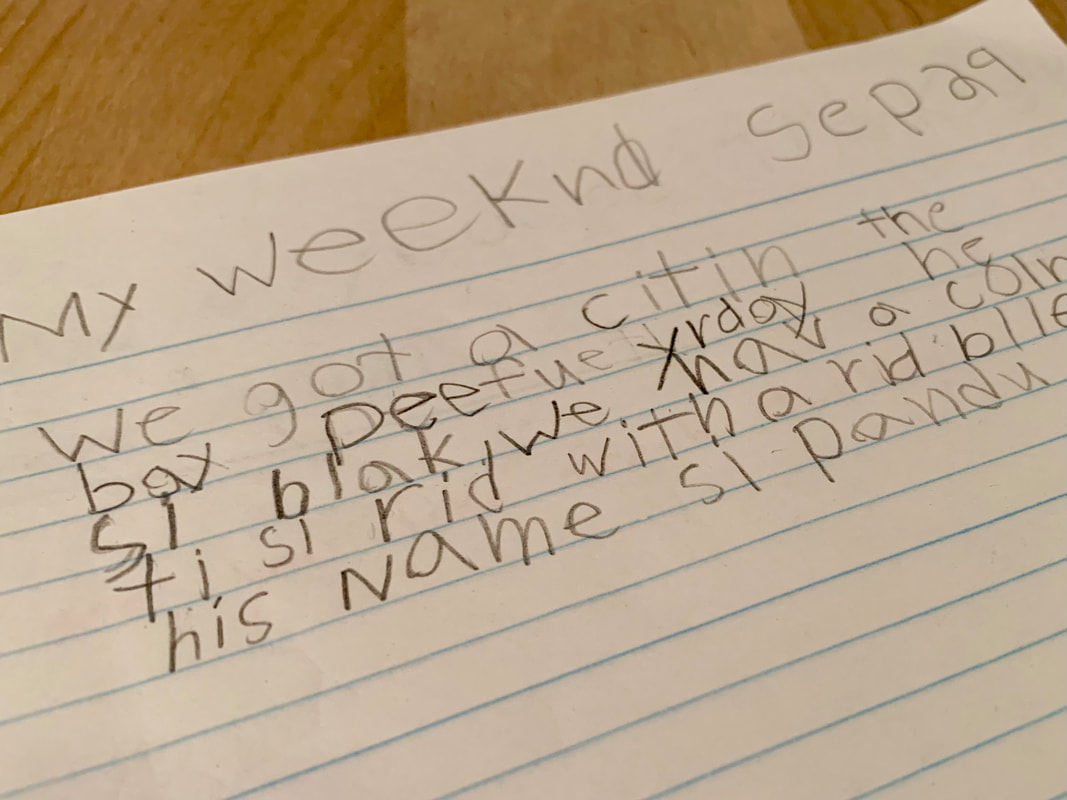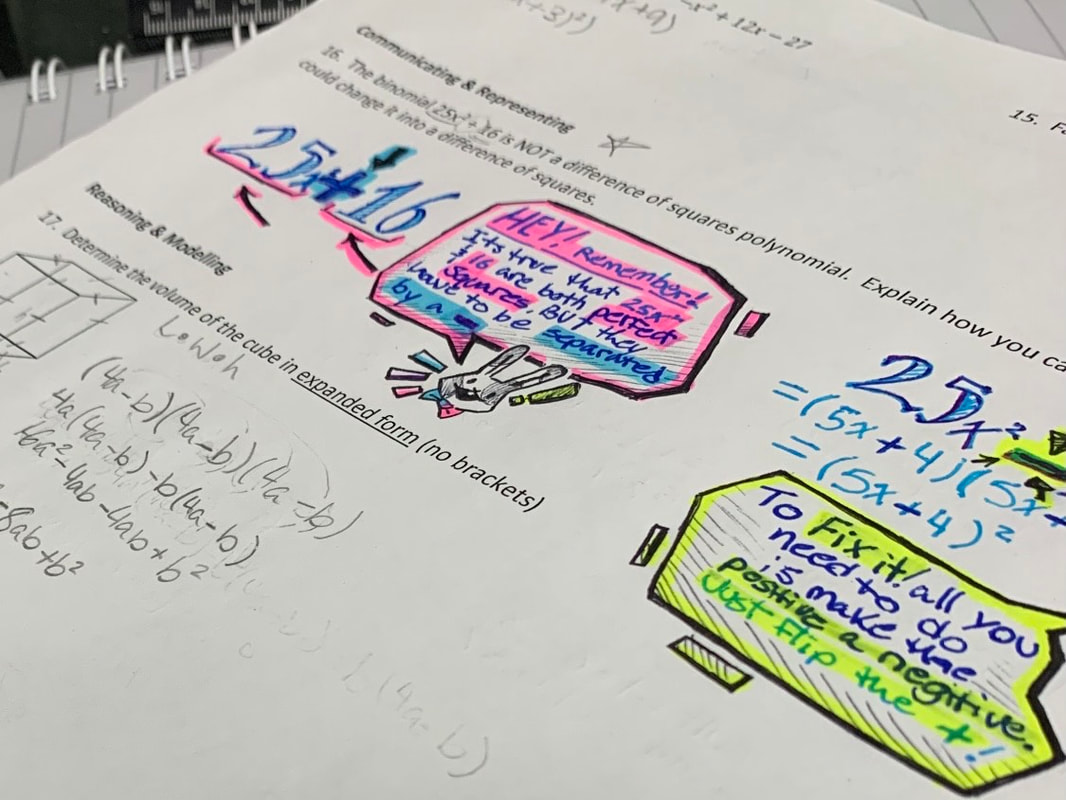October is Learning Disabilities Awareness Month! My perspective is of a parent, searching to understand why their child struggled so much in school, and is written with the permission of my daughter. For more information about dyslexia, please visit the Dyslexia Canada website. Many thanks to the wonderful teachers, education assistants and families who shared their experiences with us over the years. This article is current as of October 2021.
When the school psychologist first sat us down to explain that our Grade 3 daughter was in the lowest possible percentile for reading skills, I remember jerking my head back as if I had been struck. Although I’d seen her struggling more with letters than my other children, her intelligence was ferocious and her curiosity was endless. When I’d asked the school to observe to see if she needed more help, I thought it would be solved with some extra reading practice.
“All the signs point to dyslexia,” the very kind psychologist explained, and looking over the results, I agreed. “This is a life-long way that her brain will work, and though some things will be very challenging, there will be positives as well.”
When the school psychologist first sat us down to explain that our Grade 3 daughter was in the lowest possible percentile for reading skills, I remember jerking my head back as if I had been struck. Although I’d seen her struggling more with letters than my other children, her intelligence was ferocious and her curiosity was endless. When I’d asked the school to observe to see if she needed more help, I thought it would be solved with some extra reading practice.
“All the signs point to dyslexia,” the very kind psychologist explained, and looking over the results, I agreed. “This is a life-long way that her brain will work, and though some things will be very challenging, there will be positives as well.”
We looked at her work together, the written lines drifting farther away from the margin with each successive line, the letters getting bigger from the beginning of the line to the end. Many words were spelled incorrectly, with the right letters in the wrong order, and some the letters were written back to front – a ‘b’ in place of a ‘d’, or a ‘p’ for a ‘q’. Although these are possible signs of dyslexia, I was mistaking a symptom for the source.
Dyslexia is not a visual problem, but a challenge in interacting with spoken language, most commonly, caused by a neurological difficulty in breaking down auditory language into its component phonemic pieces. Outwardly, dyslexia appears as an unexpected difficulty in reading for a child or an adult who has the intelligence to be a much better reader, and shows up in the capability of an individual to speak, read, spell and sometimes master a second language.
What were the other signs that the doctor was seeing? From the Yale Centre for Dyslexia and Creativity, the indicators of dyslexia can be different along a child’s development:
The Preschool Years
Difficulties
Strengths
Another myth I unlearned was the idea that dyslexia affected boys, rather than girls – research shows that boys and girls experience dyslexia at the same rates. Outwardly, they may display their symptoms differently, with girls appearing more quiet, or ‘dreamy’ – which leads to underidentification.
If you feel your child may fit these symptoms, reach out to your school, family doctor or pediatrician for referral to a specialist. With a diagnosis, your child may be eligible for supports at school. A tutor who specializes in dyslexia can be very helpful. As parents, outside of school, how do we support their learning?
Beyond Tutoring - Ways to Help
📍 Karaoke. The singing activates their whole brain while they read and works even better when you get them to dance.
📍Subtitles. Excellent practice, especially if the video is in a language your child is not familiar with. Put the subtitles on everything all the time!
📍Audiobooks. Pair these with the physical book, so they can listen to the words while reading the text. Some reading apps will highlight the words as the narrator reads. As they get older, they will also be able to use the ‘Text to Voice’ feature available on some devices. Your child’s comprehension may be far above their reading skill – audiobooks are an independent way to get the intellectual learning without exhausting them with the mechanical act of reading.
📍 Dictation and scribing. Whether or not your child has neat handwriting or can spell has zero to do with their ability to understand World History, math, science, literature or art - but the stress about their penmanship, spelling or speed can make them feel like they can never be successful. Being able to get their thoughts down using a ‘voice to text’ feature or even having someone to write down their words can show their true capability in a subject.
📍 Find them extracurricular activities that they love, and center around their strengths. Trying to interact with a world that is based around being able to read is exhausting, and can wear down a child’s self-esteem. Developing skills and talents outside of reading and writing can help maintain their energy and motivation to keep trying at things that are hard for them.
Most important: your child is not broken, or below average in intelligence - but this is an integral part of the way their brain works. Learning disabilities like dyslexia make it harder for them to thrive in traditional worksheet and drill classes, but they will explode with potential if given the opportunity.
Like all things in parenting, love and patience are the key. With your caring support, your child will do well!
Dyslexia is not a visual problem, but a challenge in interacting with spoken language, most commonly, caused by a neurological difficulty in breaking down auditory language into its component phonemic pieces. Outwardly, dyslexia appears as an unexpected difficulty in reading for a child or an adult who has the intelligence to be a much better reader, and shows up in the capability of an individual to speak, read, spell and sometimes master a second language.
What were the other signs that the doctor was seeing? From the Yale Centre for Dyslexia and Creativity, the indicators of dyslexia can be different along a child’s development:
The Preschool Years
- Trouble learning common nursery rhymes
- Difficulty learning (and remembering) the names of letters in the alphabet
- Seems unable to recognize letters in his/her own name
- Mispronounces familiar words; persistent “baby talk”
- Doesn’t recognize rhyming patterns like cat, bat, rat
- A family history of reading and/or spelling difficulties (dyslexia often runs in families)
Difficulties
- Reading errors that show no connection to the sounds of the letters on the page—will say “puppy” instead of the written word “dog” on an illustrated page with a picture of a dog
- Does not understand that words come apart
- Complains about how hard reading is; “disappears” when it is time to read
- Cannot sound out simple words like cat, map, nap
- Does not associate letters with sounds, such as the letter b with the “b” sound
Strengths
- Curiosity
- Great imagination
- Ability to figure things out; gets the gist of things
- Eager embrace of new ideas
- A good understanding of new concepts
- Surprising maturity
- A larger vocabulary than typical for age group
- Enjoys solving puzzles
- Talent for building models
- Excellent comprehension of stories read or told to them
Another myth I unlearned was the idea that dyslexia affected boys, rather than girls – research shows that boys and girls experience dyslexia at the same rates. Outwardly, they may display their symptoms differently, with girls appearing more quiet, or ‘dreamy’ – which leads to underidentification.
If you feel your child may fit these symptoms, reach out to your school, family doctor or pediatrician for referral to a specialist. With a diagnosis, your child may be eligible for supports at school. A tutor who specializes in dyslexia can be very helpful. As parents, outside of school, how do we support their learning?
Beyond Tutoring - Ways to Help
📍 Karaoke. The singing activates their whole brain while they read and works even better when you get them to dance.
📍Subtitles. Excellent practice, especially if the video is in a language your child is not familiar with. Put the subtitles on everything all the time!
📍Audiobooks. Pair these with the physical book, so they can listen to the words while reading the text. Some reading apps will highlight the words as the narrator reads. As they get older, they will also be able to use the ‘Text to Voice’ feature available on some devices. Your child’s comprehension may be far above their reading skill – audiobooks are an independent way to get the intellectual learning without exhausting them with the mechanical act of reading.
📍 Dictation and scribing. Whether or not your child has neat handwriting or can spell has zero to do with their ability to understand World History, math, science, literature or art - but the stress about their penmanship, spelling or speed can make them feel like they can never be successful. Being able to get their thoughts down using a ‘voice to text’ feature or even having someone to write down their words can show their true capability in a subject.
📍 Find them extracurricular activities that they love, and center around their strengths. Trying to interact with a world that is based around being able to read is exhausting, and can wear down a child’s self-esteem. Developing skills and talents outside of reading and writing can help maintain their energy and motivation to keep trying at things that are hard for them.
Most important: your child is not broken, or below average in intelligence - but this is an integral part of the way their brain works. Learning disabilities like dyslexia make it harder for them to thrive in traditional worksheet and drill classes, but they will explode with potential if given the opportunity.
Like all things in parenting, love and patience are the key. With your caring support, your child will do well!

